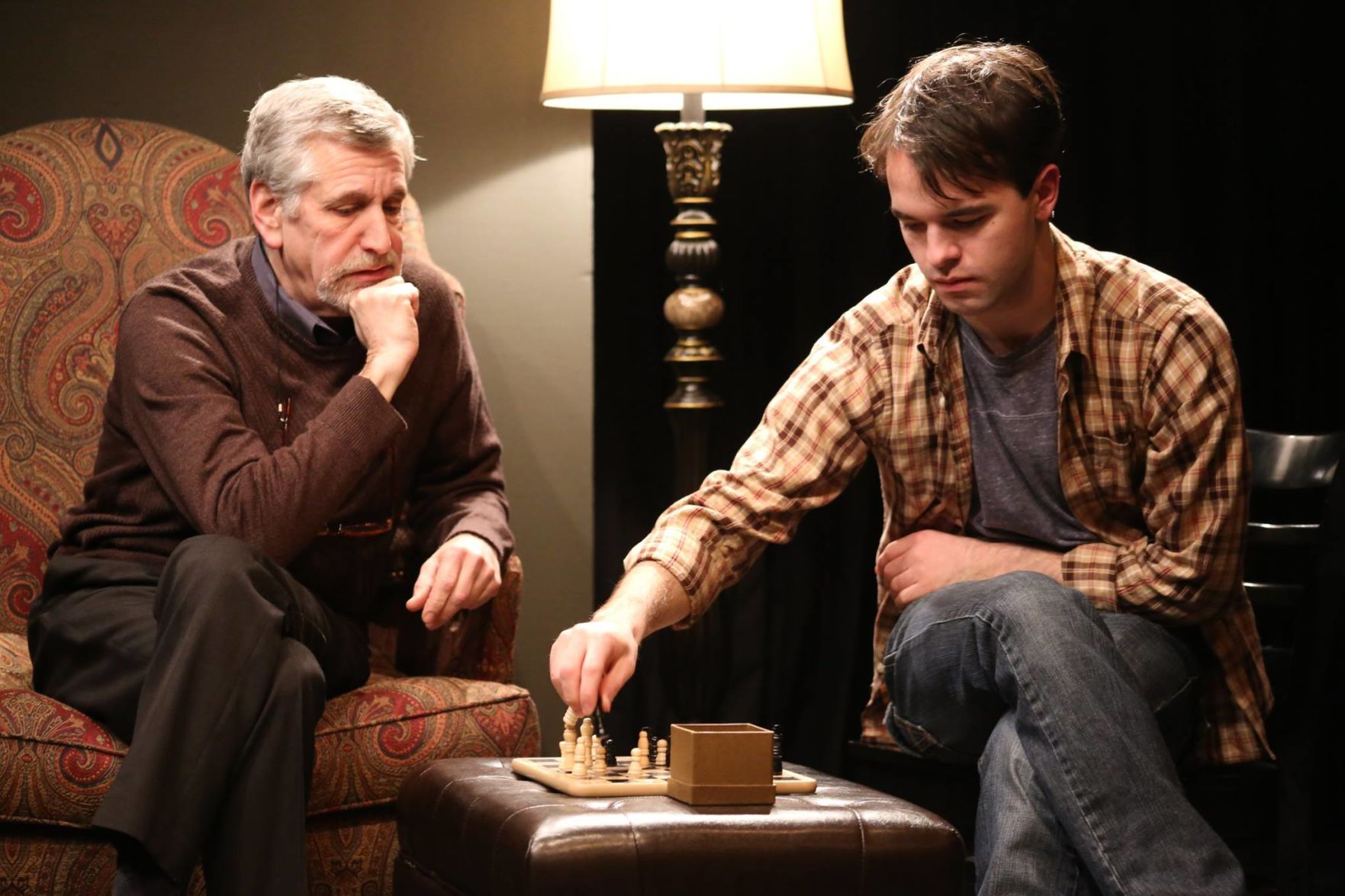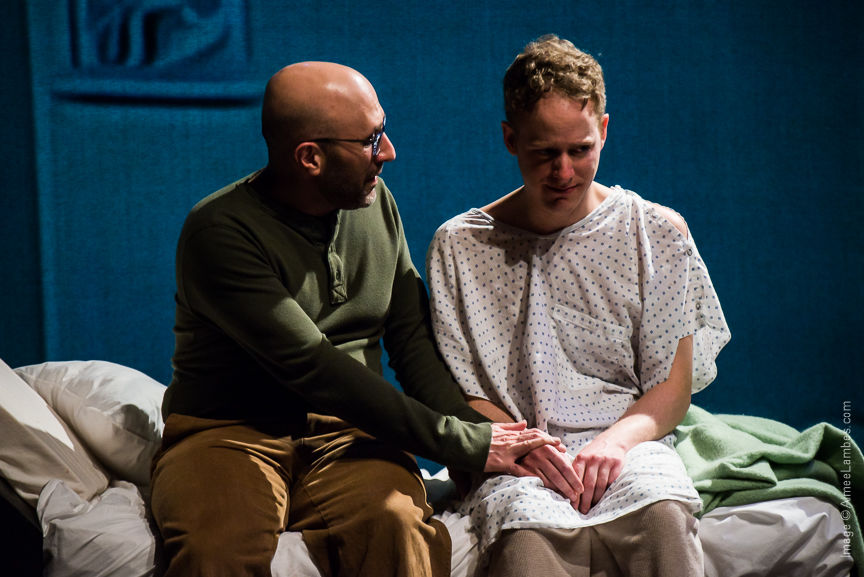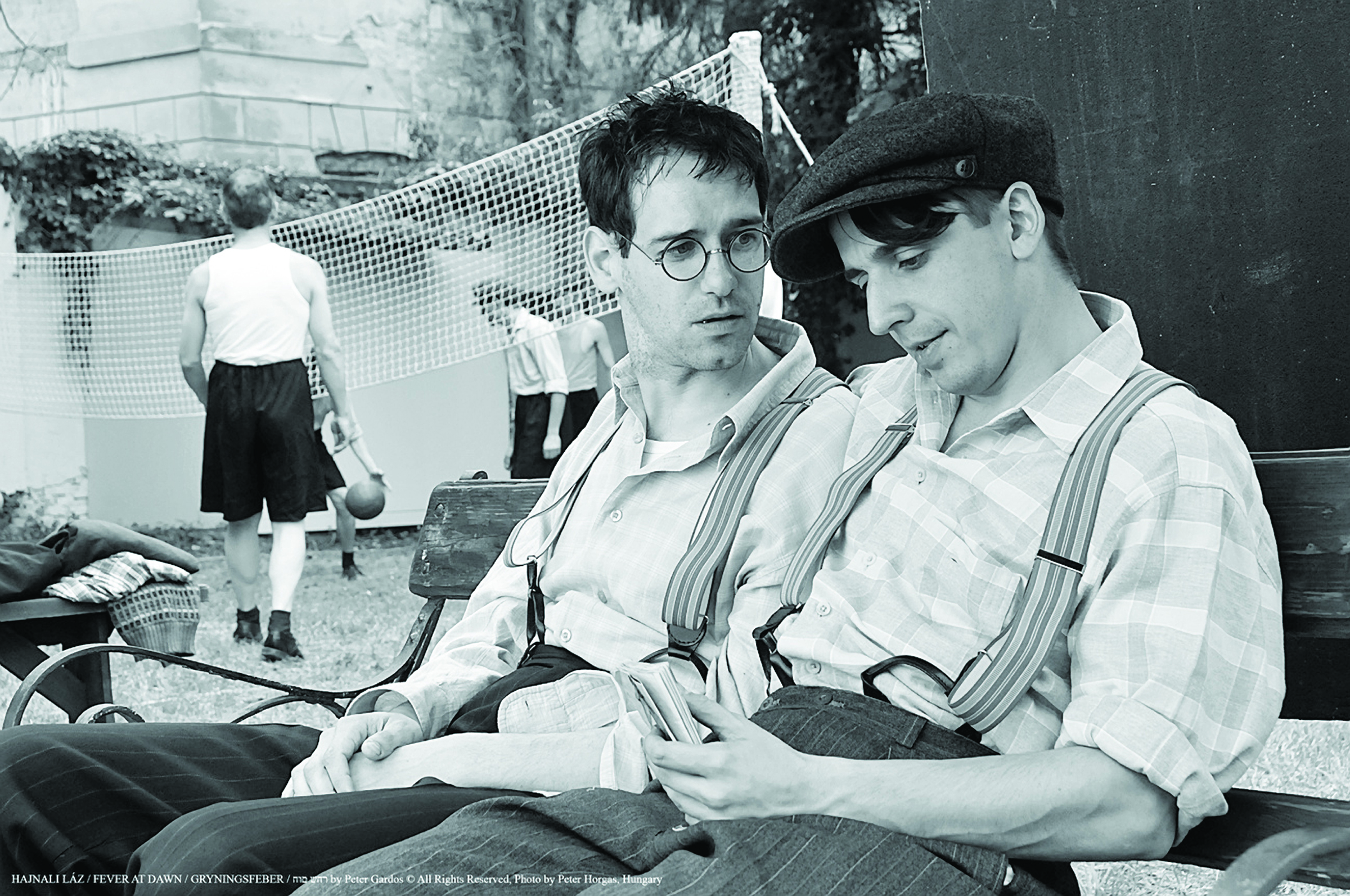Dark underbelly of romantic comedy ‘Twelfth Night’ exposed
By Bob Abelman
For those keeping score, this is the seventh time that Great Lakes Theater has presented “Twelfth Night, or What You Will,” which is one of Shakespeare’s most popular comedies. Although the story is the same, as are many of the actors, the current production could not be more different than the last time the play was seen on the Hanna Theatre stage.
“Twelfth Night” features a pair of fraternal twins – Sebastian (Jonathan Christopher MacMillan) and Viola (Cassandra Bissell) – who are separated by a shipwreck and carry on their lives thinking the other dead. Landing on the coastal city of Illyria, Viola disguises herself as a man for protection and to honor her brother, calling herself Cesario.
She finds employment with Orsino (Juan Rivera Lebron), the Duke of Illyria, with whom she secretly falls in love. The Duke is in love with the Countess Olivia (Christine Weber) and sends the cross-dressing Viola to woo her on his behalf. The guarded Countess allows herself to fall in love with the disguised Viola, but accidently beds and weds Sebastian when he happens into town.
In line with the driving subterfuge of gender duality, Shakespeare has given “Twelfth Night” ample doses of both comedy and melancholy, as characters pursue what and who they desire but cannot have.
In 2009, under Charlie Fee’s direction, the Great Lakes production leaned heavily toward the laughs. It did so by lightening up Illyria with Mediterranean sensibilities and allowing the players to play broadly, boldly and in the spirit of Feste’s line “Foolery, sir, does walk about the orb like the sun; it shines everywhere.”
Under director Drew Barr’s creative vision, the play is remarkably dark and restrained. Fully embracing the notion of night referenced in the play’s title, everything in the world of this production exists in evening’s shadows where the boundaries that define period, place and persona are ambiguous or obscured.
Although the language and musical interludes are Elizabethan, the acting and instrumentation (Jillian Kates on electric guitar) are contemporary.
Costuming designed by Kim Krumm Sorenson is dark and timeless and, like the casting, dabbles in androgyny.
And every location takes place in the same setting – a once elegant but now faded estate designed by Russell Metheny and dimly lit by Rick Martin – where one scene transitions into the next while characters from the previous or next scene linger on or around the stage.
All this adds texture to the questions Shakespeare raises about love and desire, but it plays havoc with the humor. This is particularly so in the subplots that were built specifically with comedy in mind. Their implicit buoyancy clashes with the weight and density that has been added to this production.
The Countess’s outrageous cousin Sir Toby Belch (Aled Davies) and his foolish drinking buddy Sir Andrew Aguecheek (Tom Ford), for example, come across as sad clowns rather than incorrigible rapscallions, which is a shame. When their raucous laughter fades, an undercurrent of pathos lies in wait.
Veteran performers Davies and Ford play this well, but their hands are tied by the emotional strings attached to their undeniably hilarious dialogue.
The same can be said for the wonderful M.A. Taylor’s portrayal of Feste the fool. Taylor, at times, appears to be champing at the bit to trade in his character’s poignancy for a little more playfulness.
As Malvolio, the self-impressed steward to the Countess who mistakenly believes he can win her hand, Lynn Robert Berg plays his defining pomposity relatively straight. The famous scene where Malvolio reads a letter of seduction supposedly written by the Countess but actually penned by Olivia’s gentlewoman, Maria (Laura Perrotta), is an understated affair compared with David Anthony Smith’s 2009 full-throttled performance, which is a shame as well.
But it does set up Berg’s particularly audacious selection of cross-gartered yellow stockings – per the letter’s request – most remarkably.
Despite the production’s veil of darkness, Weber’s Olivia manages to maintain her giddy delight when she falls for Cesario and Bissell as Viola/Cesario is just plain delightful.
In contrast, MacMillian’s Sebastian has completely lost his sense of humor and seems overcome by melancholy to the point of clinical pathology. It’s one thing turning a comedy dark; it’s another turning it into a Shakespearean tragedy.
Taken as a whole, this production of “Twelfth Night” may not be what you will, but it makes for a truly intriguing evening of theater. CV
On Stage
“Twelfth Night”
WHERE: Hanna Theatre, 2067 E. 14th St. and Euclid Ave., Cleveland
WHEN: Through Oct. 30
TICKETS & INFO: $13 – $80, call 216-241-6000 or visit to greatlakestheater.org.
Bob Abelman covers professional theater and cultural arts for the Cleveland Jewish News. Follow Bob at Facebook.com/BobAbelman3.
Originally published in the Cleveland Jewish News on Oct. 4, 2016.
Lead image: Juan Rivera Lebron as Orsino and Cassandra Bissell as Viola disguised as Cesario. Photo | Ken Balze











